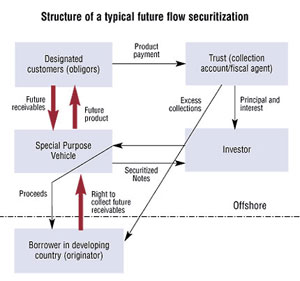 Is TALF likely to be a permanent part of the financial system that emerges from the recession? The Economist suggests that it or something like it may have to be in place in order to resurrect the “shadow banking” sector.
Is TALF likely to be a permanent part of the financial system that emerges from the recession? The Economist suggests that it or something like it may have to be in place in order to resurrect the “shadow banking” sector.
The Economist article is very well done. It discusses the effects that the disappearance of securitization has had on the economy, the reasons why the banks alone cannot provide the requisite credit to fuel a recovery, the reforms that a new market is likely to feature and finally, the impediments to the reformation of the market.
It’s particularly effective as it methodically reviews the impediments that stand in the way of each of the major buyers of securitized loans. The author notes that not only are their constraints on the volume of credit that traditional purchasers will accept in the future but that they are also likely to demand higher returns to compensate for the risk that the crisis has identified.
And that brings us to the last part of the article. Here is how the author sums up his thoughts:
How these various uncertainties resolve themselves will not be known for years but two assertions look pretty safe. The first is that the market for securitisation will shrink substantially. Borrowers are scaling back, buyers are thinner on the ground, risk aversion is up and banks are in any case under pressure to improve their loan-to-deposit ratios. The second is that the extent of banks’ continued deleveraging depends to a large extent on the scale of that drop.
The wild card, of course, is the degree of long-term support that governments are willing to provide to buttress the market, whether through guarantees, loan programmes for investors or future incarnations of government-sponsored enterprises such as Freddie Mac and Fannie Mae. Whisper it softly, but one of the lasting effects of this crisis could end up being institutionalised guarantees for buyers of securitised assets to sit alongside guarantees for retail depositors.
So there you have it. An FDIC type regime for the securitization market. Somehow that’s a very unappealing prospect.


Leave a Reply